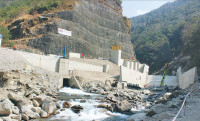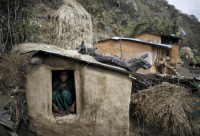Letters
Misunderstanding
In a recent article, there seem to be some crucial misunderstandings and confusions about the Memorandum of Cooperation Japan and Nepal concluded in 2019, which we fear may complicate the smooth implementation of our agreement.We understand that many Nepalis look for an opportunity to work in Japan, and their expectations are very high, as Japan opened up its labour market for Nepalis as specified skilled workers (SSW) and a direct flight between Nepal and Japan was opened in 2019. Japan desperately needs foreign workers due to the shortage of a domestic labour force. Therefore, it is in the interest of both countries to make sure that Nepali people who passed the examination for SSW can find a job smoothly and travel to Japan without excessive financial burden. However, in a recent article, there seem to be some crucial misunderstandings and confusions about the Memorandum of Cooperation Japan and Nepal concluded in 2019, which we fear may complicate the smooth implementation of our agreement (‘Third party involvement in Japan job programme contradicts agreement’, December 21, 2020). The embassy would like to clarify the following.
The article mentions, ‘The agreement says that recruitment is to be carried out under a government-to-government (G2G) modality’. This is not true. The Memorandum does not provide any government-to-government procedure for sending and accepting SSW to Japan from Nepal. The contract of employment will be signed by the Nepali workers and their employers in Japan. The Government of Japan doesn’t interfere in the private labour market. On the other hand, the Government of Nepal wants to put the implementation of the employment process under its control by issuing permission to Nepali workers wishing to work in Japan. It rather should be called ‘government-to-business modality (G2B)’. Maybe this misunderstanding derives from the fact that Nepal has concluded migrant worker agreements with other countries only under the G2G modality and has not used the G2B modality.
Since last October, 207 Nepalis passed the Japanese language test for care workers and 234 Nepalis passed the technical test for care workers. Unfortunately, none of them have been able to find a job so far. It is desirable they make their own effort to find a job in the Japanese labour market.
The article further mentions, ‘both countries had strictly ruled out the role of any third party agencies while hiring and supplying workers to Japan’. This is also untrue. The MOC does not have any paragraph stating to exclude the operation of private recruiting agencies. Paragraph 4 of the Memorandum states that Japan and Nepal can consult on issues related to corrective measures for improper accepting organisations in Japan, or organisations engaging in support for foreign human resources with the status of residence of specified skilled workers, and for the improper activities of the concerned organisations in Nepal. Therefore, the participation of private organisations in the process of sending and accepting SSW to Japan from Nepal is not prohibited. The intermediary agencies to provide Nepali workers with jobs should be registered in Japan in accordance with Japanese laws.
The article referred to the possibility that Nepali workers who wish to work in Japan may have to pay for airfare, insurance and medical examination. Since Japan is a free economy country, the Government of Japan can’t enforce Japanese companies to pay these costs for Nepali workers. In practice, most Japanese companies cover these costs in employment contracts, but it depends on the individual contract.
The article further stated that ‘Nepal is the only South Asian country from where Japan would be hiring workers for 14 industrial sectors’. Actually, Japan also signed similar agreements with Pakistan, Bangladesh and Sri Lanka after Nepal.
We hope that this information is helpful for Nepali people to better understand the agreement between the two countries and that those who passed the examination will be able to find a job and go to Japan as soon as possible.
The Embassy of Japan in Nepal




 9.92°C Kathmandu
9.92°C Kathmandu







